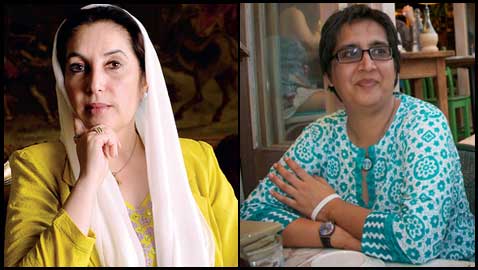National pretences & The Age of Injustice
When conspiratorial mindsets and reluctance towards change deter any form of progress in a nation, the country becomes a limping victim of its home-bred ideologies — the contemporary reality of Pakistan. The gist of such ideological insularity originates from the behavioral nature of the society, where radical observations and practices construct the backbone of “pristine conservative beliefs”. Such a pretence — deeply embedded in the society — encourages endless perplexity and misinterpretation, subtracting all avenues of rational sense in its wake. The focal points of concentration remain the propriety of young women’s attires, the attribution of stellar nationalism to those residing within Pakistan’s territorial boundaries, and the association of cowardice with those outside of it, altogether severely contradicting Pakistan’s stance on true conservatism, where prohibition equates principle, symbolizing prejudice in a generation of growing tolerance. These trendsetting conjectures, aimed at habituating the populace to any discourse powered with conspiracy, signals the genesis of a disastrous national design — the introduction of an imperishable cover of subjectivity, shielding ulterior agendas to perfection, rendering true justice in the system an absolute impossibility.
Commercial altruism — the nationally accepted equivalent of truth — helps muster the influence necessary to protect the questionable credentials of controversial figures from the lash of just criticism. Thus, any disreputable personality can manipulate media bases to his convenience, refuting factual events off the strength of Oscar-worthy antics and vehement appeals to public sentiment, self-ratifying his level of eligibility. True merit is thereby accomplished through showmanship, and justice is mocked by controversy.
Moreover, the deliberate reluctance to isolate politics from religion — a nefarious plot engineered by General Zia at the cost of national conscience — marked Pakistan victim to one immensely regrettable reality — the undue leverage of Islam for strengthened extremist doctrines. Decades of the Armed Forces’ sponsorship of the Taliban, veiled under the benevolent 80’s show of proliferating madrasas and unconditional zakaats, has left subsequent generations harboring a sense of inadequate devotion. A strange urgency to do more in the name of Islam declares them prey to the distorted dictates of militant groups. Deriving opportunity out of Islam’s sacred requisite of undivided submission, militant factions are therefore gifted with an undisputable justification for all covert extremist designs — a deadly pretence profiteering off the piety of an average Pakistani-Muslim. A righteous temperament for terrorism is built within the devout, introducing an endless comfort for violence. The ideological setback is a nationwide series of dogmas, strong enough to declare any rational voice which questions the ethics of such religious misrepresentation, a chronic enemy of his beloved religion.
Furthermore, for a state of such blind compliance, incitement to violence prefers a revolutionary disguise, as evidenced in August last year by PTI chairman Imran Khan’s fruitless four months of anti-government protests. Derogatory rhetoric and scathing dictions failed the basic sense of civility in men, women and children alike, who were charmed into reviving genuine democracy, through all non-democratic methods of change. Once charisma belittles ethics, the public’s most powerful deterrent against misleading courses of action — its rational judgment — is lost, and no catastrophe is thereby out of bounds. As a result, the populace plays the puppets, the tyrants pull the strings, and the established law plays the role of a spectator.
The success behind this nexus of national pretence and injustice, is induced simply by the complete monotony of the national discourse. Any break within the malicious routine — typically impacted by freedom of speech — is treated to the bullet of death. Politician Benazir Bhutto, SUPARCO system engineer Dr. Athar Ali, human rights activist Sabeen Mahmood and a rapidly expanding list of progressive Pakistanis, found themselves taken apart on home soil, only because they denied allegiance to such monotony, and withstood the muscle of radical bigotry.
A massive divide of reason and plausibility is swiftly estranging Pakistan from the rest of the world. Today, regional neighbors India and China boast economic progress and political clout by having established strong foreign relations with notable powers — irrespective of radical sentiment — and have subordinated ideological differences to uniformed global competition. However, for Pakistan to ever entertain a similar layout of exhausted social and political monopoly, it has to first outlive its dated fixation with deniability. Although, to the contrary, incessant rehearsals of denial and dogmatism on every domestic stage reveals the public’s tacit acceptance of such practice as an essential tradition in the national system — a routine, an inevitability. Thus, the basic right of defying radical doctrines is viewed as a tabooed, alien characteristic.

